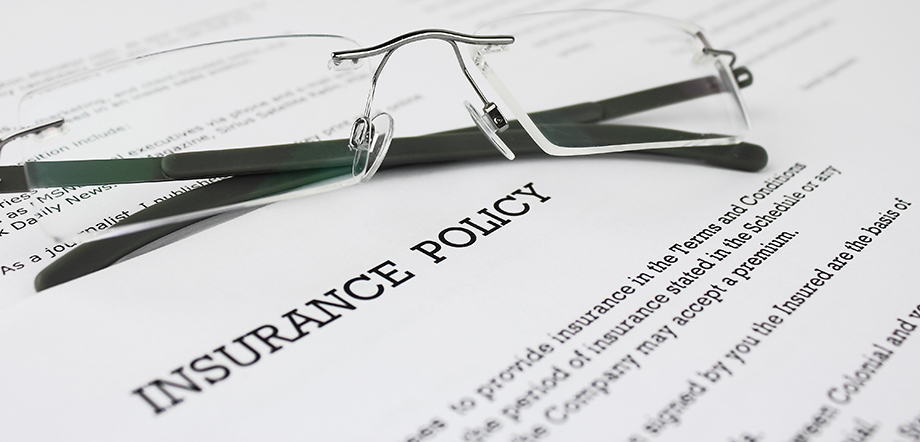Client Alerts
Insurance Considerations for Businesses Facing Losses from Coronavirus Disease (COVID-19) Outbreak
March 2020

Client Alerts
Insurance Considerations for Businesses Facing Losses from Coronavirus Disease (COVID-19) Outbreak
March 2020
As increasing numbers of people test positive for coronavirus (COVID-19), companies worldwide are establishing contingency plans in the event that the outbreak affects their businesses. Most companies have insurance policies to guard against unforeseen circumstances, but to what extent will insurance cover losses due to the effects of a global outbreak of a viral infection? It is important to note that every insurance policy is different, and companies should consult with their brokers and attorneys to determine the extent of available coverage. This alert provides general guidance on the coverages offered by carriers and issues for businesses to consider when examining whether their insurance policies cover an outbreak.
Business Interruption and Contingent Business Interruption
Many companies purchase coverage designed to cover financial loss caused by interruptions in their operations; however, the covered causes are often specifically delineated and require a designated peril to trigger them, such as fire, earthquakes, or other specified incidents. Policies often also require “direct physical loss” to the property and proof of causation. Thus, for example, if a business were to close voluntarily but was otherwise still habitable, it probably has not suffered a “direct physical loss.” In contrast, if property becomes uninhabitable due to a contamination, there might be a basis to claim a “direct physical loss.” A careful review of the coverages and exclusions is necessary to determine:
- Is the policy’s business interruption coverage triggered by “direct physical loss of or damage to” insured property?
In the event of a claim for coronavirus-related business interruption, certain insurance carriers may seek to deny coverage based on the policy’s “physical loss” requirement. - Does the policy or any endorsement provide or exclude coverage for losses caused by “communicable or infectious diseases”?
Carefully review the policy and all endorsements to understand what coverages are expressly excluded under the policy. - Does the policy have a “designated peril” requirement?
If the policy requires a designated cause of loss, but a coronavirus-related loss does not qualify, coverage for business interruption will not be available. - Does the policy provide coverage when there is an order of civil authority contributing to the business interruption?
Some policies provide coverage for such a business interruption; others do not. - Does the policy exclude bacteria and/or viruses?
In the aftermath of the SARS epidemic, many policies now contain specific exclusions for bacterial or viral infections. If a policy excludes coverage only for bacteria, there may still be coverage for viral infections, such as the coronavirus. - Does the policy list the affected supplier(s)?
Contingent business interruption coverage often covers only suppliers specifically listed in the policy.
Event Cancellation and Nonappearance Insurance
Insurance policies covering event cancellations or nonappearance of key persons generally provide coverage for losses beyond the control of the policyholders, organizers, and/or attendees. Policyholders should review cancellation and nonappearance coverage to determine:
- Can the company mitigate its losses by rescheduling an event to a different time or location?
Many such policies require the policyholders to take reasonable measures to mitigate losses. - Are there actual travel restrictions or other circumstances making it impossible for the event to proceed?
Cancellation of an event due to the fears of attendees or organizers may be in the best interest of the business, but may not be covered under the policy. - Does the policy or any endorsement to the policy provide or exclude coverage for losses caused by “communicable or infectious diseases”?
Carefully review the policy and all endorsements to understand what harms are excluded under the policy.
CGL, D&O, and E&O Insurance
Commercial General Liability (CGL) policies may provide defense and indemnification for claims asserted by third parties for bodily injury or property damage arising out of the coronavirus outbreak. Additionally, claims made by shareholders as a result of handling business operations related to the coronavirus may trigger coverage under Directors and Officers (D&O) and/or Errors and Omissions (E&O) policies. Policyholders should review their liability policies to determine:
- What are the policies’ timing/reporting requirements?
Certain policies are written on a “claims made” or “claims made and reported” basis, which impose strict limitations allowing coverage only for claims asserted against the policyholder and requiring the policyholder to notify its insurance carrier before the end of the policy period or within a specified “extended-reporting period.” Most CGL policies cover “bodily injury” or “property damage” arising from an “occurrence” where coverage is triggered when the bodily injury or property damage occurs and not when it is reported to the carrier. Review the policy carefully to determine whether the definition of “bodily injury” is broad enough and does not exclude things like pandemic, virus, or bacteria. - Which policy exclusions apply to bar coronavirus-related claims?
With regard to D&O and E&O policies, relevant exclusions may include “bodily injury” exclusions, as well as exclusions based on fraud, dishonesty, and willful violations of law. While most D&O policies intend to exclude claims arising out of, or related to, bodily injury, challenges are still being made to these provisions in courts around the country.
Additional Information
Tucker Ellis recommends a careful review by professionals of the terms and conditions of applicable policies to determine the extent of coverage that may be available in the event that the coronavirus affects a business. Reviewing coverage with a broker is a valuable opportunity to explore alternative or additional coverage to protect business interests. Consulting attorneys on available coverage may be useful in determining when to incur some costs – even if not covered – while taking precautionary measures to protect against potential larger losses in the face of the coronavirus outbreak.[1]
[1] This Client Alert was prepared with the invaluable assistance of associates Emmanuel Sanders and Smita Gautam.
ADDITIONAL INFORMATION
For more information, please contact:
- Kevin M. Young | 216.696.4691 | kevin.young@tuckerellis.com
- Karl A. Bekeny | 216.696.2699 | karl.bekeny@tuckerellis.com
- Jennifer L. Mesko | 216.696.4579 | jennifer.mesko@tuckerellis.com
This Client Alert has been prepared by Tucker Ellis LLP for the use of our clients. Although prepared by professionals, it should not be used as a substitute for legal counseling in specific situations. Readers should not act upon the information contained herein without professional guidance.
